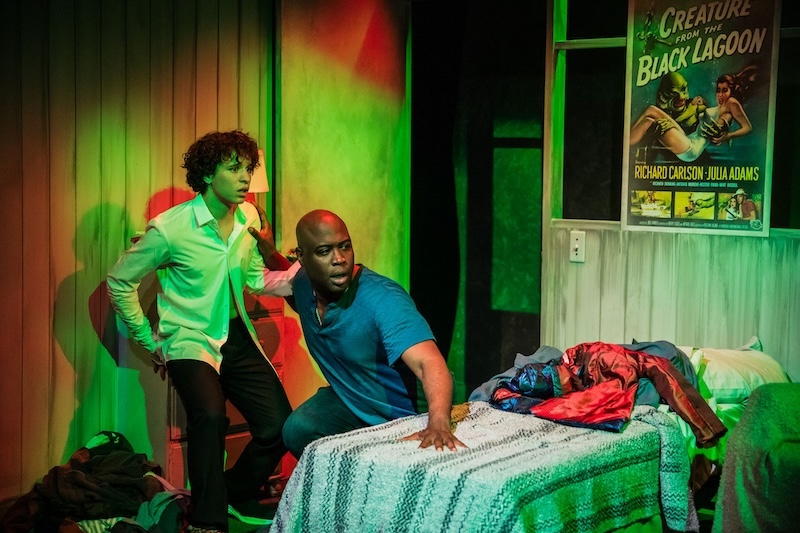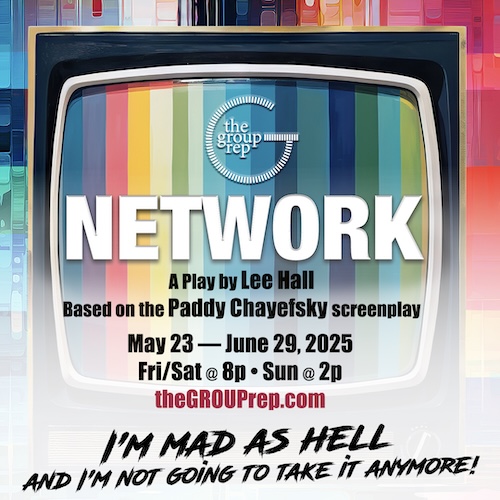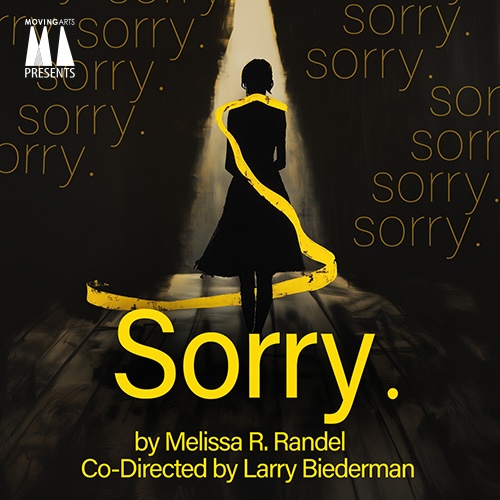
Logan Leonardo Arditty and Kevin Daniels (Photo by Jeff Lorch)
Reviewed by Deborah Klugman
Rogue Machine at The Matrix Theatre
Through May 19
RECOMMENDED
In Monsters of the American Cinema, playwright Christian St. Croix spins a potentially affecting story about the relationship between a gay Black man grieving his dead husband and the straight White teenager who is the deceased man’s child. The production features a moving performance by Kevin Daniels as the widower and a polished staging by director John Perrin Flynn, with a special nod to Christopher Moscatiello, whose sound design and original music add subtle but certain dramatic dimension. Still, a surfeit of exposition — both characters deliver a series of lengthy monologues throughout the play — works to weigh down the narrative. And dream sequences that lean into the bizarre are sometimes more disruptive to the story than they are enhancing.
Remy (Daniels) and his stepson Pup (Logan Leonardo Arditty) share a shabby mobile home in Santee, a small community about 20 miles northeast of San Diego. Remy describes it as White, — as in the redneck kind. For income, he operates a drive-in movie theater that had once belonged to the boy’s father, Brian. The theater specializes in showing classics and, on one night of the week, vintage horror movies on a special two-or-one basis. As portrayed by Daniels, Remy is a likable guy — gentle and loving and nobody’s fool. He protests at rallies for gay rights. And he’s devoted to Pup, not just from a sense of duty but because of a natural bond that has flourished between them since he first came into Pup’s life five years prior. The two share a love of cinema, among other things, and Remy has just splurged on a camcorder for this kid who is the apple of his eye.
The current main event in Pup’s life is his school’s Homecoming dance which he is anxiously preparing for. He’s escorting a girl named Mia, whom he insists is only a friend, but whose approval he’s obviously anxious to attain. The evening doesn’t go as planned, however, and its unanticipated developments precipitate the play’s dramatic crisis, which is a long time coming but compelling when we finally get there.
One recurring problem Revy and Pup encounter is that Pup is subject to nightmares often peopled with the monsters from the films at the drive-in. On occasion, he takes on the countenance and monstrous behavior of the freakish creatures he dreams about, presumably a manifestation of the predilections for destructive behavior he displayed as a child. We learn about these childhood episodes through one of Remy’s lengthy ruminations on the past.
In his notes in the script, St. Croix explains that the play should resemble a documentary of sorts — hence the lengthy monologues. But Monsters of the American Cinema, though it embraces themes of bigotry and intolerance, seems best appreciated as a family drama, one which focuses on one individual struggling to be a good parent, while also demonstrating how racism and homophobia can (once again) track an ugly trail through good people’s lives. For me, the drama would have been more powerful had more been conveyed in the dialogue and interaction between the characters instead of recountal directly to the audience.
In his stage debut, Arditty succeeds in his presentation of a typically confused teen, but his evocation of the darker predatory elements of his character doesn’t play as convincingly. (In a way, however, his is the more challenging role; Remy’s grief and the other hurts he’s suffered in his life are more broadly accessible to most of us than the erratic behavior Pup engages in.)
Scenic designer Stephanie Kerley Schwartz’s humble, rundown interior aptly befits the lifestyle of a struggling marginal family unit. Lighting designer Ric Zimmerman’s abundant use of reddish hues underscores the fevered dream sequences, and combines with Michelle Hanzelova-Bierbauer’s projection design, a fast- flickering collage of famous film classics and Moscatiello’s tension-inducing audio (tech director is Ryan Wilson) to produce a potent sensorial dynamic.
Rogue Machine at The Matrix, 7657 Melrose Avenue, W. Hollywood. Fri.-Sat., 8 pm, Sun., 3 pm, Mon., 8 pm; thru May 19. www.roguemachinetheatre.org Running time: 90 minutes with no intermission.














